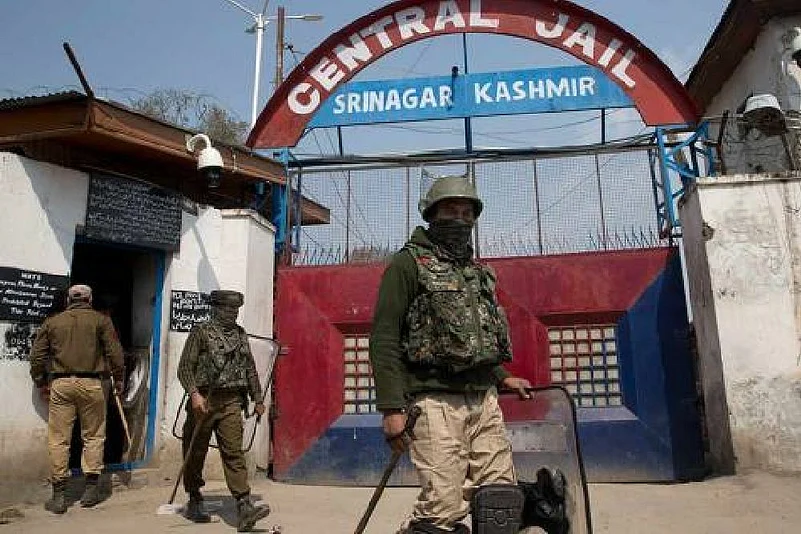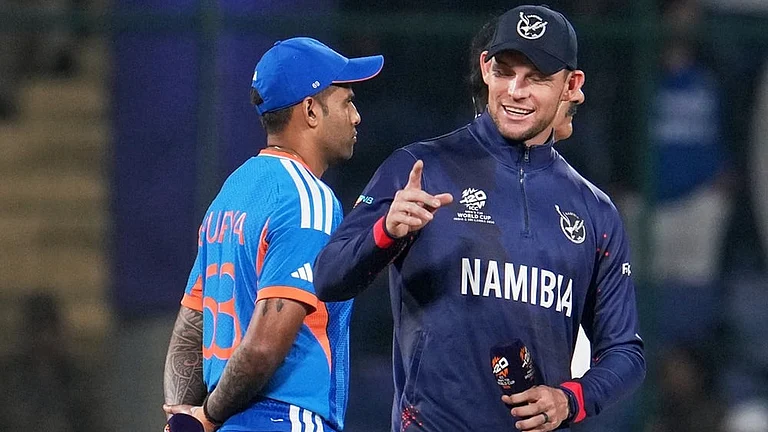The detainees from Jammu and Kashmir, lodged in various jails inside the state and other parts of India, are forced to sign a bond that prohibits them from making comments, speaking or holding discussions against the Centre's move to abrogate provisions of Article 370 to secure their release.
The detainees are asked to sign a document, to secure their release, pledging that they will not make any comments or issue statements or participate in public meetings related to "recent events" in the state of Jammu and Kashmir for a period of one year.
The recent events refer to the Centre's move to abrogate provisions of Article 370 and bifurcation of the state into two Union Territories.
The bond reads that such remarks, statements or gatherings have the potential of endangering the peace and tranquillity and law and order in the state.
Detainees are also asked to deposit Rs 10,000 as surety, and in case they breach the bond, they have to pay Rs 40,000.
After the Centre stripped Jammu and Kashmir of its special status and bifurcated it into two Union Territories on August 5, the state administration arrested and detained thousands of political leaders, activists, separatists and "potential troublemakers" and lodged them in different jails and sub-jails across the country. The detainees included 144 minors, according to the government.
Activist Sushobha Barve, who was arrested along with 12 other women when they tried to hold a sit-in in Lal Chowk last week, says under the CrPc there is a specific text for 107 bail bond but the authorities in Jammu and Kashmir have changed it and linked it with Articles 370 and 35A.
“In this new bond, we have been asked not to speak about 370 and 35A. But this bond is illegal and our lawyer had to fight with authorities over it,” Barve told Outlook.
She said the initial draft of the bond was the worse than the second one. “We would have fought over the wording of the bond but among the detained women were eighty-year-olds also and our legal fight over the wording of the bond would have taken more time and they would have remained in detention for a much longer period,” Barve said.
She said their lawyers felt it was essential to get them out of the jail and take the fight over the legal wording of the bond later.
Under Section 107, the bail bond or the “Bond to Keep the Peace”asks the detainees or troublemakers to undertake “not to commit a breach of peace” or “do an act that may probably occasion a breach of the peace”.
However, the tweaked version of the bond forces the signatories to undertake to not make any comment against the Centre's move to abolish Jammu and Kashmir's autonomy.
Former Chief Minister Mehbooba Mufti's daughter Iltija Mufti told Outlook that her mother had been asked to sign the bond, which she refused.
“The bond says that she cannot issue any statements or hold any political meetings. She refused to sign it,” Iltija said.
“Until now, the government made two attempts to get her to sign the bond. The last one was made a few days before the UNGA meeting. She refused on both occasions.”
While senior lawyers and rights activists have described this bond as “illegal” and unconstitutional, state advocate-general D.C. Raina defended it as “absolutely” legal.
“It (the change in language) does not alter or take away the basic spirit. The language is only the format, the sense remains the same…. I don’t think that (considering the bond illegal) will be the right understanding. It falls within the purview of the law,” The Telegraph quoted advocate-general Raina as saying.
Senior lawyers said that the new version of the bond violates the right to free speech and expression guaranteed by the Constitution.


























